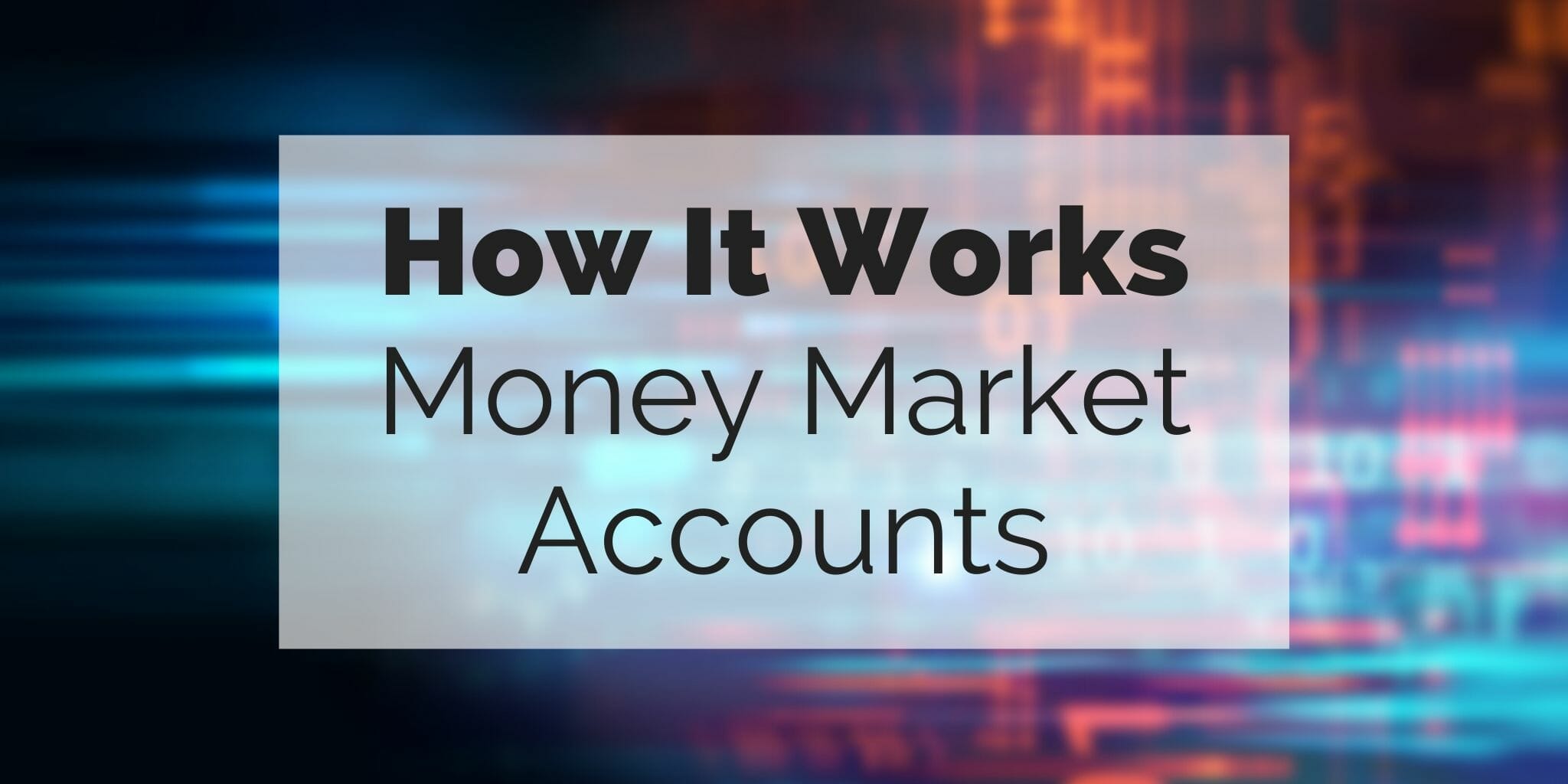When you think about opening a bank account, your general requirements may be simplicity and security. To begin with, you would probably establish your financial relationship by opening a checking, savings, or both.
When you get to your bank, the representative may ask if you would like to open a money market account. Don’t let this throw you off. If you haven’t heard of money market accounts, you may be tempted to overlook the option. However, there are many benefits to a money market account, so it is worth considering.
How Do Money Market Accounts Work?
In general, a money market account is a cross between a savings account and a checking account. You get to enjoy the best of both worlds. With a money market account, you enjoy the benefits of earning interest on your funds with the option of open access to the money. You can access your funds by writing a check or possibly by using a debit card as you would with a checking account.
Money Market vs. Savings vs. Checking: What’s the Difference?
When you think about the best place to hold your money, there are two key features you likely have in mind. You would like to find a way for your money to work for you by earning interest, and you would like to have easy access to it to take care of daily responsibilities. For any alternative accounts to make sense, you need to know the answer to the following questions:
- How do money market accounts differ from savings accounts?
- How do money market accounts differ from checking accounts?
1. Savings Accounts
Savings accounts and money market accounts have many similarities. In both, you earn interest on your funds. You are also subject to Regulation D with both accounts. Regulation D is a Federal Reserve regulation that limits you to six transfers or withdrawals from your money market or savings accounts.
So, do money market accounts have a better interest rate than other types of accounts? The interest rate offered on this type of account is typically higher than the interest offered with savings but not usually higher than a CD or IRA.
The rates are often competitive as an incentive for opening the account. The financial institution may benefit more from money market accounts versus savings accounts, so interest rates are usually higher. Often, banks give you a tiered option, and that means that the interest you earn will increase as you reach certain savings milestones.
Tiered rates reward you for your savings efforts. For example, you may be offered a .2 percent rate bump when your savings account reaches $10,000 and another .2 percent with a $25,000 balance. For this reason, a money market account is a good idea for short-term savings goals, like for a new car or vacation funds.
2. Checking Accounts
The similarities between checking accounts and money market accounts may also make this a more attractive option for holding your money. Like many others, you will need open access to the money that you put in the bank.
Can you write checks from a money market account? After all, there are bills to pay and mouths to feed, and going to the ATM every time you need some cash can be inconvenient. A money market account can act as a checking account in this way. You can write checks from this account, and you may also have the option to use a debit card.
Checks and debit cards come in very handy when you need to access your funds outside of banking hours. The weekend is a popular time for running errands like shopping for groceries. It is important to remember to be very careful, though.
Remember that Regulation D allows for six transactions in a month or account cycle. Going beyond those six transactions can mean penalties and fees. Transactions subject to the regulation include transfers between accounts and certain withdrawals. Transfers and withdrawals at a bank, or through an ATM, do not count against the limit.
Are Money Markets Safe?
You’re now familiar with the workings of a money market account, but that leaves you with the most important question regarding this type of account. When you need to rely on your account to cover an unexpected expense or pay for daily needs, you want to make sure the funds will be there. You work hard for your money, so it is reasonable to require that.
It is reasonable for you to wonder if a money market is similar to mutual funds or other types of investments. After all, the word “market” is in the name, so the stock market may come to mind.
You may ask your banker, “Are money market accounts FDIC insured?” You will be relieved to hear that the answer is yes. With a money market account, you get the same $250,000 in insurance per depositor in each financial institution.
Is a Money Market Account Right for Me?
There are many options to suit your financial needs. Hopefully, the provided information will help you to decide if the benefits of a money market account will serve your banking needs.
If you are still curious if this may be right for you, here is the best way to sum up the criteria of who money market accounts are best for. This type of account is useful for people who do few transactions in their checking account, keep higher balances, and who desire free access to their funds when needed.

